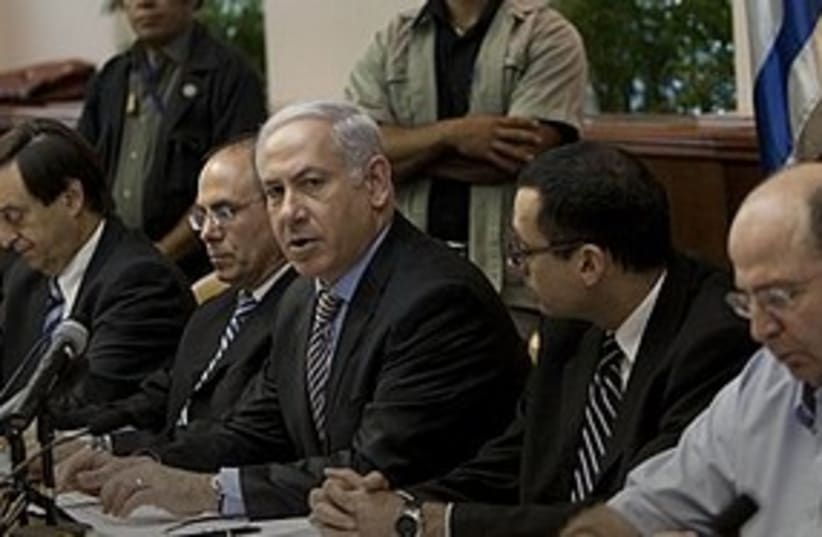Prime Minister Binyamin Netanyahu finally referred to the West Bank building freeze on Sunday after pressure from ministers during a weekly cabinet meeting on the matter.Netanyahu signaled that a partial freeze will continue to be enforced even though in the past he promised that building in the West Bank will continue as normal once the freeze ends.RELATED:Obamato Netanyahu: Extend building freeze amid talksAbbassays he ‘can’t allow even one concession’"It's not all or nothing, but there are also intermediate options to consider," Netanyahu said during a Likud ministerial meeting."I don't know if there will be a comprehensive freeze," he said. "But I also don't know if it is necessary to construct all of the 20,000 housing units waiting to be built."The prime minister did not discuss the settlement freeze at the beginning of the weekly cabinet meeting, much to the surprise of many ministers.Contraryto Netanyahu's earlier silence on the issue, a number of ministers gave their opinion on the issue of the West Bank building moratorium, which is set to expire at the end of September.
Social Affairs Minister Isaac Herzog referred to the settlement freeze and said that the talks scheduled for Sharm e-Sheikh "are an important step.... Brave steps need to be taken during the negotiations, even if that means a continuation of the settlement freeze."In contrast, Interior Minister Eli Yishai claimed that "we need to face the truth and not hide our heads in the sand. I am very skeptical. I do not believe that the Palestinians want political negotiations." Netanyahu: Palestinians must recognize Israel as Jewish stateNetanyahu said that a peace agreement is based, first of all, on the recognition of Israel as the national state of the Jewish People."The conflict between us and the Palestinians, as opposed to other conflicts that were resolved by peace agreements, is over the same piece of ground," Netanyahu continued.The prime minister stated that "we say that the solution is two states for two peoples, meaning two national states, a Jewish national state and a Palestinian national state. To my regret, I have yet to hear from the Palestinians the phrase 'two states for two peoples'. I hear them saying 'two states' but I do not hear them recognizing two states for two peoples."Netanyahu referred to the scheduled meeting in Sharm a-Sheikh on Tuesday and said "I believe that if the Palestinian leadership adheres to continuous negotiations, despite the obstacles that are coming up on every side, and if it is serious and determined in its intention to advance towards peace, just as we are serious, then it will be possible to,within a year, reach a framework that will be the basis for a peace settlement.
Netanyahu signals partial building freeze will continue
PM: "It's not all or nothing, but there are also intermediate options to consider"; Yishai: "We need to face the truth and not bury our heads in the sand."
